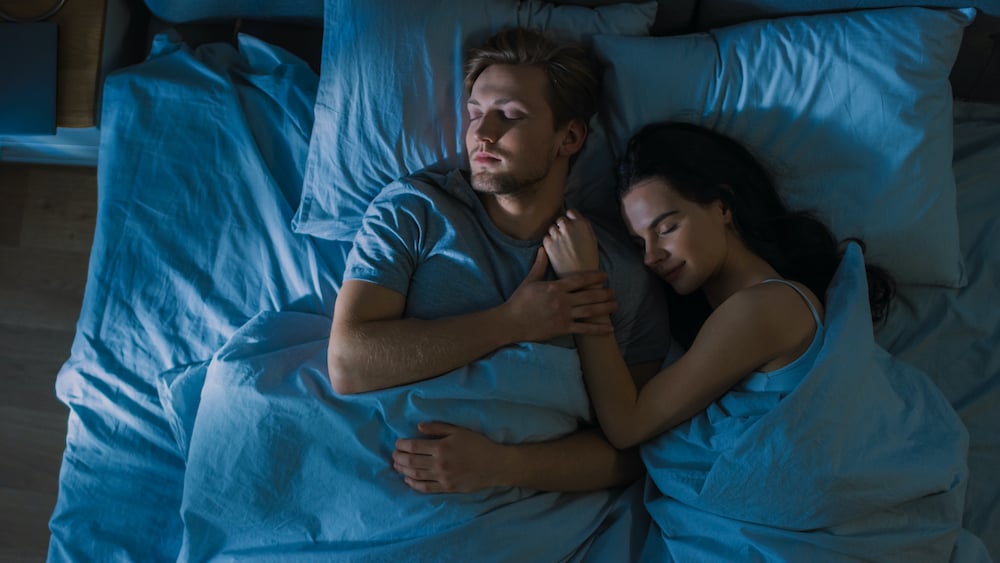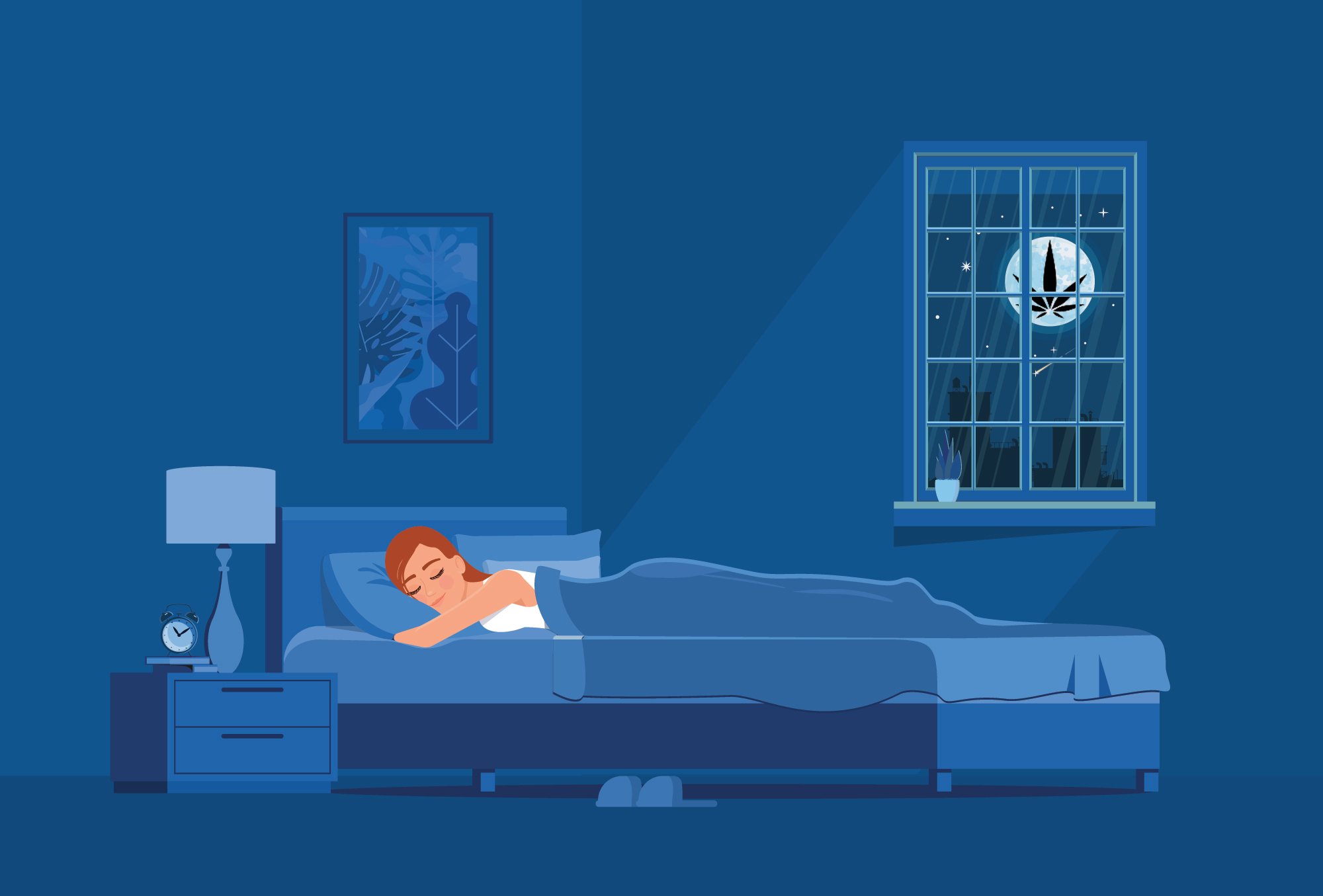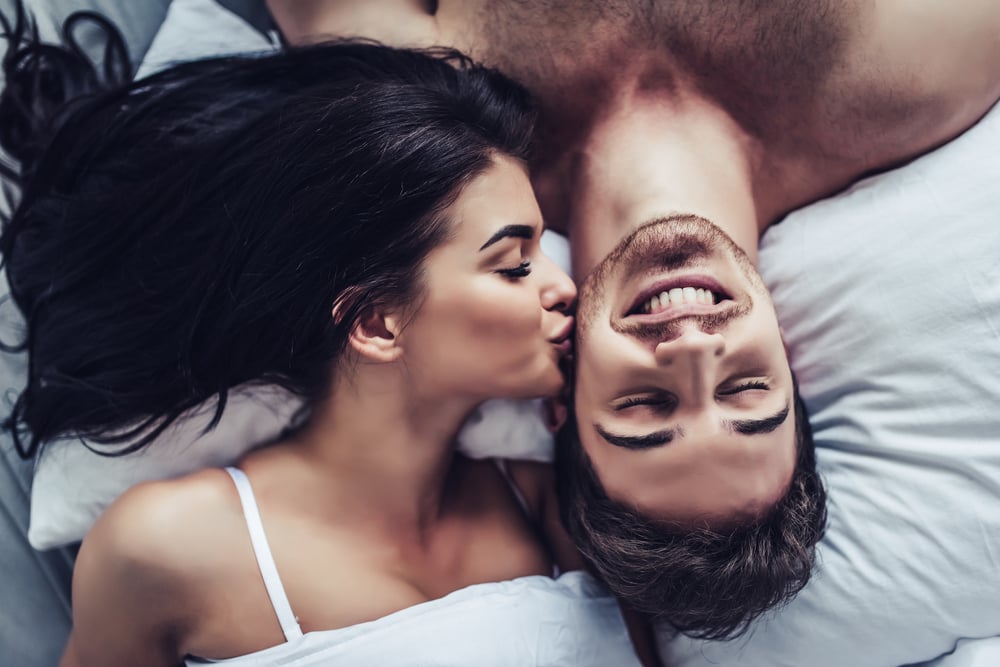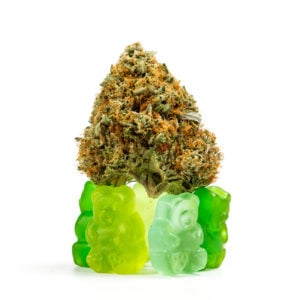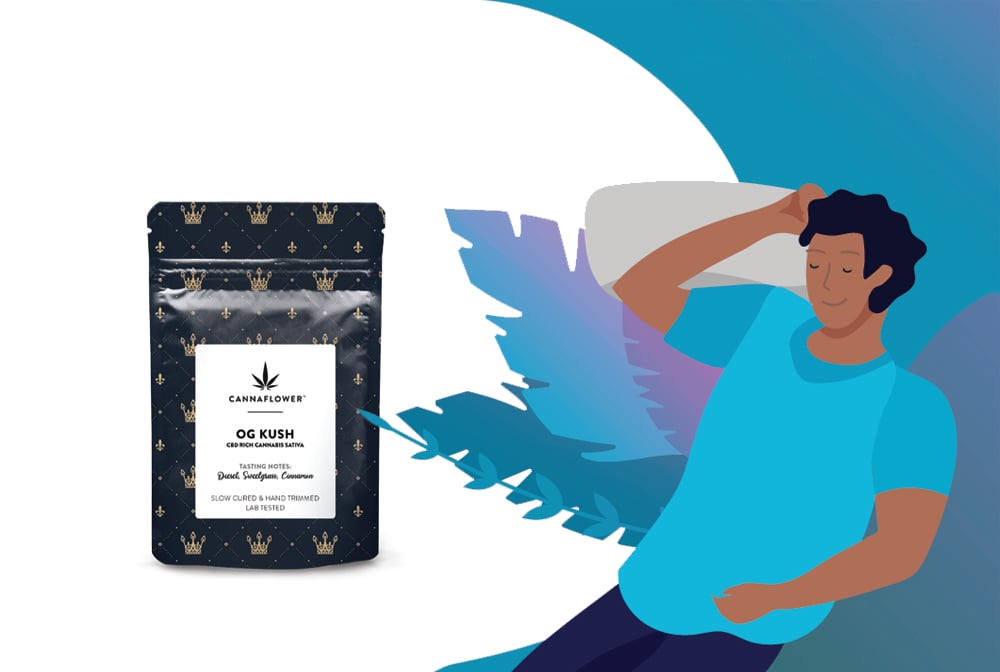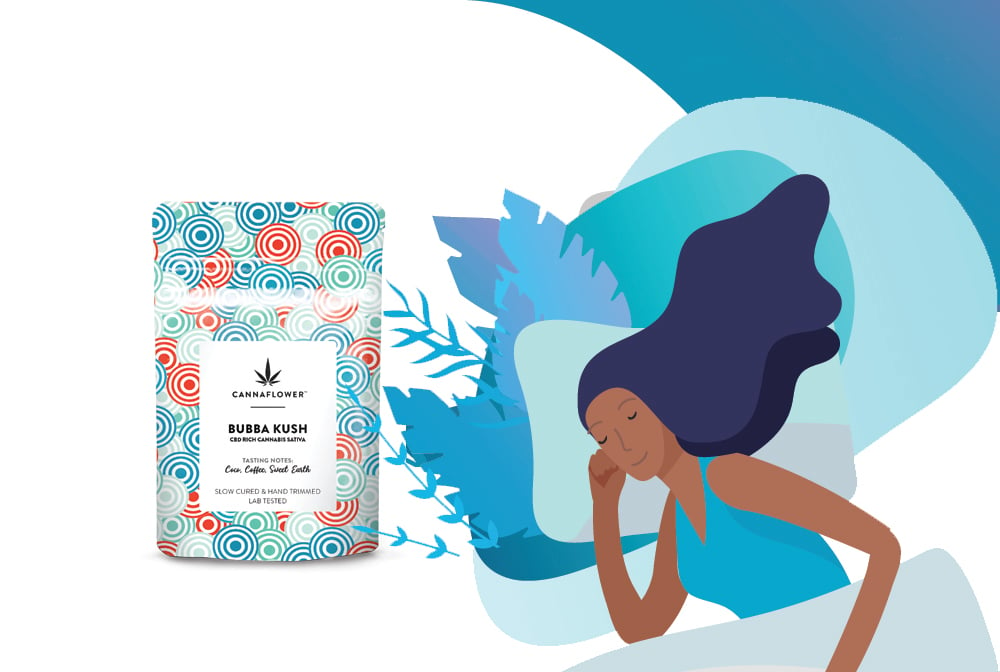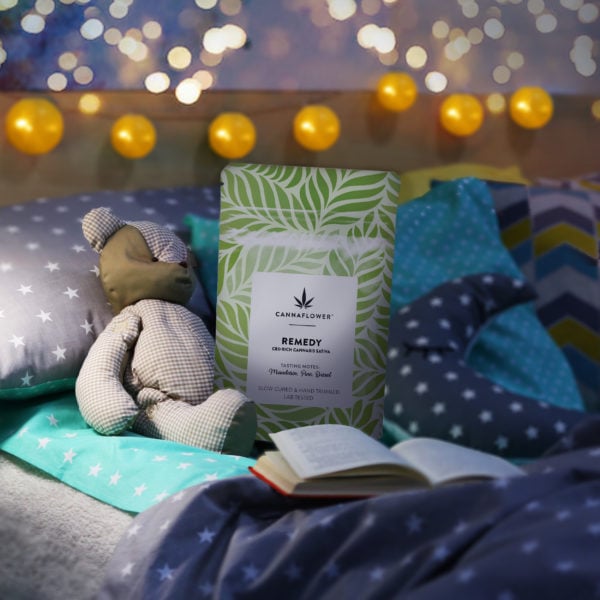Exploring CBD Flower for Sleep and Relaxation
In our fast-paced, digital world, achieving restful sleep is a common challenge. Surveys indicate that a significant portion of the American population experiences difficulties with sleep at least once a week, and many are diagnosed with sleep disorders. Amidst this backdrop, CBD, particularly in the form of CBD flower, has garnered attention for its potential to aid relaxation and possibly improve sleep.
CBD flower, the smokable part of the hemp plant, is rich in cannabinoids that interact with the body’s endocannabinoid system, which is thought to play a role in regulating bodily functions including sleep. Users often choose to smoke CBD flower as it provides a direct method of consumption, allowing for rapid absorption of cannabinoids.
Here’s what you might consider about CBD flower:
Immediate: Smoking CBD flower can deliver cannabinoids quickly into the bloodstream, making it a preferred method for those seeking immediate relaxation.
Aromatic: The natural terpenes in CBD flower not only contribute to its distinct flavor profiles but may also enhance the overall relaxing experience through aromatherapy.
Customizable: Smoking CBD allows for easy adjustment of amount based on individual needs, providing users with flexibility in managing their intake.
While there is anecdotal evidence supporting the use of CBD for sleep, it is important to approach this topic with an understanding that research is ongoing, and results vary widely. As the scientific community continues to explore the effects of CBD, those interested in using CBD flower for sleep are encouraged to consult healthcare professionals to ensure it is appropriate for their personal health needs and to stay informed about the latest research findings.
Before going any further, please remember the FDA has not evaluated any of the medical claims made on this website. All of the info we share on CBD for sleep is not intended to treat, cure, or diagnose any condition. If you have specific questions about trying CBD flower, we suggest speaking with a medical professional.
Understanding CBD’s Role in Managing Anxiety and Its Impact on Sleep
Understanding CBD’s Role in Managing Anxiety and Its Impact on Sleep
The relationship between mental health and sleep is complex, with conditions like anxiety often intertwined with sleep disorders such as insomnia. Symptoms such as restless thoughts, muscle tension, and poor sleep quality commonly manifest in both anxiety and insomnia, indicating a close link between these issues.
Recent studies highlight that a significant portion of those suffering from insomnia also experience anxiety or depression, underscoring the interconnected nature of these conditions. This overlap has led to increased interest in potential treatments that can address both anxiety and sleep issues simultaneously.
CBD, or cannabidiol, is a compound found in cannabis plants that has been studied for its potential to influence various health conditions, including anxiety and sleep disturbances. Unlike THC, CBD does not produce psychoactive effects, making it a subject of interest for those seeking alternatives to traditional pharmaceuticals.
Key considerations regarding CBD for anxiety include:
Interaction with the Body: CBD interacts with the body’s endocannabinoid system, which is involved in regulating mood, sleep, and stress responses.
Research Insights: Preliminary research suggests that CBD may have calming effects on the nervous system, potentially aiding those with anxiety and, by extension, helping improve sleep quality due to reduced anxiety levels.
Holistic Approach: CBD is often considered as part of a broader wellness regimen, potentially complementing other therapeutic practices aimed at reducing anxiety and improving sleep.
It is important for individuals interested in exploring CBD as a treatment option for anxiety and sleep disturbances to consult with healthcare providers. This ensures that it fits safely into their overall health plan and to stay updated with ongoing research that can inform safe and effective usage.
Amazingly, another São Paulo study suggested CBD might affect the brain’s ability to enter REM sleep. In this study, scientists examined the effects of CBD on patients with Parkinson’s disease. Although this study was small, researchers said patients reported a reduction in nightmares after taking CBD.
Please remember, research into CBD for insomnia is only in its initial stages. Despite this fact, it’s not unreasonable to suggest CBD could induce relaxation by influencing certain brain areas. But to fully understand how CBD makes us tired, we have to take a closer look at the endocannabinoid system (ECS).
Exploring the Endocannabinoid System (ECS) and Its Functions
Exploring the Endocannabinoid System (ECS) and Its Functions
The endocannabinoid system (ECS) is a complex biological system crucial for maintaining internal balance, or homeostasis, within the body. This system influences various physiological processes, including appetite, mood, the immune response, and sleep patterns, making it integral to overall health and well-being.
Here are some key functions and characteristics of the ECS:
Regulation of Processes: The ECS helps regulate a range of bodily functions. It modulates eating behaviors, emotional responses, and plays a role in maintaining the immune system’s balance, potentially influencing inflammation and immune cell activity.
Sleep and Melatonin: One of the significant roles of the ECS is its influence over the sleep-wake cycle and the regulation of melatonin, a hormone critical for managing sleep patterns. By interacting with cannabinoid receptors in the brain and body, the ECS can affect how we sleep, potentially aiding in both the onset and quality of rest.
Cannabinoid Receptors: The system includes cannabinoid receptors found throughout the body, such as CB1 and CB2 receptors. These receptors are activated either by the body’s naturally occurring cannabinoids or by external sources, such as CBD and other cannabinoids found in cannabis.
Endocannabinoids: The body produces substances known as endocannabinoids, which stimulate these receptors. The two most studied endocannabinoids are anandamide and 2-arachidonoylglycerol (2-AG), which play roles in various internal processes.
Interestingly, our bodies produce endocannabinoids, which are similar to the phytocannabinoids found in cannabis sativa and hemp plants. The human body also appears to have cannabinoid receptor sites throughout the nervous system. When phytocannabinoids like CBD enter our body, they seem to interact with the ECS and promote slight alterations in mood, inflammation, and, of course, sleep.
Understanding the ECS and its complex interactions within the body underscores the potential of cannabinoid-based therapies, like CBD, to influence health by supporting the body’s natural equilibrium. This insight also contributes to the growing interest in how enhancing ECS activity might aid in managing various conditions, including those related to anxiety, sleep, and immune function.
CBD Flower vs. CBD Oil For Sleep – Is There A Difference?
When considering CBD for sleep, it’s essential to differentiate between the forms it can take, notably CBD flower and CBD oil. Both have their unique attributes and advantages depending on individual needs and preferences.
CBD Flower:
Immediate Effects: One of the primary benefits of CBD flower is the rapidity with which it can take effect. Smoking or vaporizing CBD flower allows for quick absorption of cannabinoids into the bloodstream, offering almost instant effects. This can be particularly beneficial for those seeking immediate relief to help with sleep.
Whole Plant: CBD flower involves the use of the whole hemp plant, which means it contains the full spectrum of cannabinoids, terpenes, and other phytochemicals that work synergistically in what is often referred to as the “entourage effect.” This natural synergy could enhance the overall therapeutic benefits, potentially affecting sleep quality and duration. According to recent research from ncbi.nlm.nih.gov, the compounds naturally found in hemp seem to work together to produce a heightened therapeutic effect. So, even if CBD “works” on its own, it might work better when combined with other cannabinoids, terpenes, and flavonoids.
Aromatherapy and Experience: Smoking CBD flower can also offer an aromatherapy experience, which can be relaxing and calming in itself. The ritual of preparing and smoking CBD flower can additionally have a soothing effect, helping to wind down before bed.
CBD Oil:
Ease of Use and Precision: CBD oil is known for its convenience and the ability to precisely measure dosages. This can be especially useful for consistent, long-term use where managing the exact amount of CBD consumed is important.
Longer-Lasting Effects: While it may take longer to feel the effects of CBD oil since it is typically ingested or used sublingually, the impact of CBD oil can last longer compared to smoking or vaporizing. This extended-release can be beneficial for maintaining sleep throughout the night.
Versatility and Discretion: CBD oil can be used in various ways — ingested directly, added to food, or applied topically. It’s also more discreet and socially acceptable in situations where smoking is not appropriate.
In summary, the choice between CBD flower and CBD oil for sleep depends on personal needs and preferences. Those looking for quick effects might prefer smoking CBD flower, while those seeking ease of use and longer-lasting effects might find CBD oil more suitable. Consulting with a healthcare provider can also help tailor recommendations to your specific situation, enhancing your approach to managing sleep through CBD.
It’s Not All About CBD – Supporting Terpenes & Cannabinoids that Sleep Patients Should Consider
While CBD always steals the show, it’s important to recognize many other compounds play a significant role in hemp flower. Indeed, aromatic terpenes and other cannabinoids could significantly alter your hemp smoking experience. If you’re looking for a CBD flower, you should research secondary compounds in third-party lab reports.
It’s also important to note that compounds known as terpenes might influence how a hemp strain tastes and makes you feel. For instance, some studies suggest the fruity terpene myrcene has sedative potential. Other research papers show the floral terpene linalool might induce sleepiness in rats. Be sure to keep these compounds in mind when exploring different CBD flowers and gummies.
Choosing the Right CBD Flower for Sleep: A Review of Popular Strains
When selecting a CBD flower strain to aid with sleep, it’s crucial to consider the specific characteristics and potential benefits of each option. Here’s a look at some popular CBD flower strains that are commonly favored for their relaxing effects, which might help improve sleep quality:
OG Kush – A Classic Couchlock Strain
Kush strains have an infamous reputation in the cannabis industry for inducing couchlock sedation. So, it should come as no surprise that the high-CBD version of OG Kush has a similar—but non-psychoactive—effect on users.
As a bonus, this indica-heavy hybrid boasts exceptionally high concentrations of the terpene beta-caryophyllene. Recent studies suggest this spicy terpene might have anti-inflammatory potential, which could help chronic pain patients ease into the night.
Bubba Kush – Earthy Taste, “Grounding” Effects
Another nighttime strain in the Kush lineage is the 100 percent indica Bubba Kush. Originating in the Hindu Kush mountain range, our Bubba Kush provides all of the original strain’s celebrated effects with no more than 0.3 percent tetrahydrocannabinol (THC), the psychoactive compound found in cannabis plants.
Users typically describe Bubba Kush as having a slightly sweet and woodsy aroma thanks to traces of myrcene and alpha-pinene. You might also notice a hint of citrus flavor from the terpene limonene. Definitely pick up this dessert strain if you want a complex terpene profile with reliably potent indica effects.
CBD Flower For Sleep & Possible Adjunct Therapy For Insomnia Patients
While customers love CBD in the evening, this cannabinoid seems to work best in conjunction with other doctor-approved relaxation techniques. For example, scientists strongly suggest turning off electronic screens at least 30 minutes before bed could “reset” our circadian rhythm. It’s also well known that regular exercise has multiple health benefits and could significantly enhance sleep quality, without any notable side effects even in higher doses.
If you’re one of the many people having trouble sleeping for the recommended eight hours per night, consider adding high-quality CBD to a healthy nighttime regimen. If you have any questions about choosing the best CBD hemp flower for your needs, never hesitate to reach out to our team at [email protected].
Explore Our Menu!
The world’s best CBD hemp flower straight to your door.


